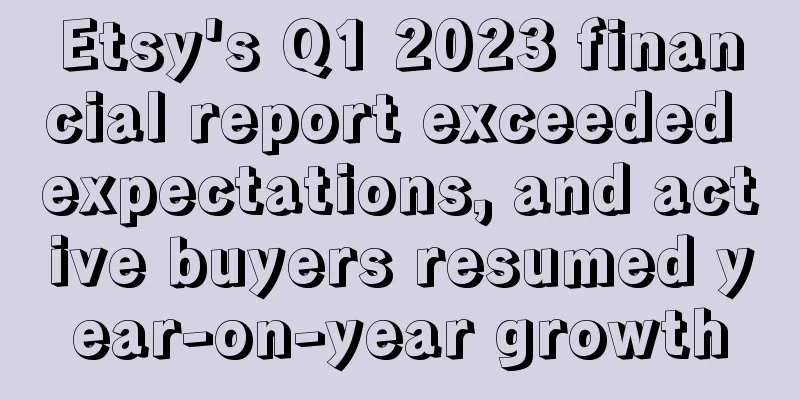|
The survival of the fittest in the business world is no different from the fighting on the battlefield, and there is never a shortage of stories about the fall of "generals". According to an official announcement from Wish, Qoo10's acquisition of Wish was completed on April 23rd local time. Qoo10 currently owns and operates the Wish platform and all ContextLogic subsidiaries related to the Wish e-commerce platform. It is reported that after the integration, the products of relevant sellers will be able to be displayed and sold on the Wish and Qoo10 platforms at the same time, and Wish will open the integration channel to all merchants in batches.
From its former glory with a peak market value of up to US$14 billion to its current acquisition for approximately US$173 million, Wish's fate is ultimately contrary to its name as a platform "in the name of hope", which is truly regrettable. So, why did Wish fall into this situation?
Founded in 2010, Wish was initially an algorithm-based technology service company that only provided commercial advertising services to customers. It was not until 2013 that Wish officially transformed into an e-commerce platform and entered the cross-border e-commerce field. At that time, the cross-border e-commerce industry was already spreading like wildfire, and Wish, on the premise of gathering a large number of Chinese sellers and targeting the sinking market, relied on extremely low prices, personalized algorithms, and social media traffic to carve out a path in the US e-commerce market dominated by old giants such as Amazon, and once became the world's most downloaded shopping app. In 2020, Wish's revenue doubled to US$2.5 billion and it was listed on the Nasdaq in the United States with a market value of US$14 billion. However, after knocking on the door of IPO, Wish failed to usher in a new growth inflection point as expected, but its performance took a sharp turn for the worse: in 2021, Wish's full-year revenue fell 20% year-on-year to US$2 billion; in 2022, Wish's full-year revenue fell again by 73% year-on-year to US$571 million, and its net loss widened to US$384 million. According to the latest financial report data released by Wish, its revenue in 2023 reached 86 million US dollars, a year-on-year decline of 61%, and its net loss was 68 million US dollars. Its performance continued the overall decline of the previous two years.
To trace its root cause, on the one hand, the huge marketing costs generated by social media traffic have gradually dragged down Wish's profits; on the other hand, the rampant inferior products and vicious competition under the low-price model have led to it being gradually "abandoned" by consumers. At the same time, declining traffic, shrinking profits, and extensive management of "penalties instead of management" have also caused more and more sellers to lose confidence in Wish and choose to "escape." Data shows that the number of active Wish users has dropped sharply from 90 million in 2021 to 11 million by the end of 2023. It is worth mentioning that in the face of the above-mentioned difficulties, Wish, whose performance has been deteriorating, has tried to "save itself" several times by reducing costs and increasing efficiency, raising the threshold for sellers, and shrinking its market layout. However, with the entry of Temu, which also takes the high cost-effective route, Wish, which has not had time to regain the "hearts of the people", has further squeezed its living space and has been forced into an embarrassing situation of seven consecutive years of losses. In general, Wish's story tells the industry that the "unchanging and disorderly extreme low-price model" cannot lead to long-termism . Rules that exceed the sellers' ability to bear will push the sellers further away. This is also a common problem of Temu, and many sellers still complain about it. However, in the past two years, with the rise of Temu and other platforms with low prices as the core, many e-commerce giants have seen the dawn of profitability in the sinking market and have begun to make plans. The Qoo10 that acquired Wish is likely to be one of them.
Public information shows that Qoo10 is a private e-commerce platform headquartered in Singapore, with localized online markets across Asia. Like Wish, Qoo10 is also a full-category platform covering fashion, beauty, home furnishings, electronics and other products. It operates multiple global websites such as Qoo10.com and TMON, covering markets such as Singapore, South Korea and the United States. After Wish announced that it would be acquired by Qoo10, the industry couldn't help but become curious about the intentions of this e-commerce platform. Some people believe that Qoo10 may have taken a fancy to the sinking market deployed by Wish: Compared with Qoo10, the industry may be more familiar with eBay, which controls its parent company Giosis. In recent years, eBay has been competing with its old rival Amazon while facing the impact of emerging low-price platforms such as Temu and SHEIN. The performance pressure is unprecedented.
According to eBay's CEO, although eBay's full-year revenue and profits increased in 2023, the UK and German markets showed a weak trend and the business was experiencing negative growth. Under such circumstances, the acquisition of Wish, which has always been known as the "American version of Pinduoduo", also makes people think that eBay may have the intention of transforming its layout into the sinking market. However, according to the financial report, facing the weak trend in some markets, eBay is more looking for niche markets to increase profits, such as attracting more collectors by selling watches, sneakers and other luxury goods, and providing authentic authentication services to eliminate counterfeits. Therefore, it is somewhat one-sided to conclude that eBay wants to expand into the sinking market based solely on Qoo10's acquisition of Wish.
At the same time, another group of sellers said that Qoo10 intends to accelerate market expansion and expand its international influence: Before Wish, Qoo10 had successively acquired Korean e-commerce platforms such as Tmon, Interpark and WeMakePrice . Like Wish, these platforms were once "flourishing" in their respective markets, but eventually suffered losses and their market share declined. They have a certain degree of popularity and market foundation. For Qoo10, after acquiring these platforms, Qoo10 will obtain their user base and merchant resources, and use some of their advantages to improve the operational efficiency and user experience of its own platform, which is obviously more advantageous than market expansion without any foundation. What do you think about this? Welcome to discuss in the comment area~
|










